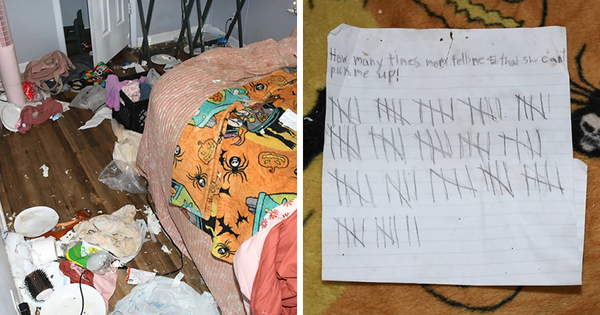
Let’s face it: tipping culture in America has reached a boiling point. Everywhere you go—from your local coffee shop to a self-serve kiosk—there’s a screen asking for 20%. We all want to support service workers, but sometimes tipping feels more like pressure than appreciation. I’ve started to push back, and I’ve realized that not every transaction deserves extra dollars. If you’ve ever felt unsure about when not to tip, these eight situations may give you permission to say “no” without guilt.
1. Self-Checkout Kiosks Asking for Tips
One of the most bizarre trends is being asked to tip after doing all the work yourself. At many convenience stores and fast-casual eateries, a screen flashes a tipping option—even when you scan your own items, bag them, and barely interact with staff. Tipping was meant to reward service, not automation. In these situations, I skip the tip completely and feel no remorse. If there’s no human service involved, why should there be a human tip?
2. Takeout Orders with No Added Service
Ordering takeout used to be a straightforward, no-tip transaction. Now, even when you pick up your own food and no one brings it to your car, you’re prompted to add a tip. If the staff simply handed me a bag at the counter, I wouldn’t feel obligated to tip unless the service was truly exceptional. Tipping should reflect effort, not default guilt. In these cases, I usually select “no tip” unless something went above and beyond.
3. Poor or Rude Service at Sit-Down Restaurants
I almost always tip when dining out—but not when the service is clearly careless or disrespectful. If a server ignores the table, forgets the order, or acts annoyed, I adjust the tip accordingly—or leave none. Tipping is a reward, not an automatic entitlement. Most servers work hard, but if I’m treated like an inconvenience, I won’t feel bad about holding back. Respect should go both ways between customers and staff.
4. Baristas Who Just Hand Over Coffee
I’m all for tipping when a barista makes a custom drink or goes out of their way to get your order right. But if someone simply grabs a bottled juice or brews a standard drip coffee without any interaction, I don’t feel the need to tip. Many shops now include tipping options even when there’s no real “service” component. I prefer to tip based on effort, not just presence. If the work is minimal, the tip should be, too, or nonexistent.
5. Hotel Staff Who Never Actually Helped
There’s an expectation to tip hotel staff like housekeepers and bellhops—but only if they actually do something for you. If no one handles my bags, and I don’t request room service or extra towels, I don’t feel obligated to leave a tip. I value hard work, but tipping blindly without any interaction doesn’t make sense. Gratitude should match the service provided. When I receive no personal attention, I skip the envelope.
6. Delivery Apps That Charge Multiple Fees
Food delivery apps already tack on service charges, delivery fees, and platform fees before asking for a tip. By the time I’m done, that $12 meal turns into $25. If the delivery was late, the food was cold, or there was no communication, I will reduce or skip the tip. Not every delivery driver deserves a 25% bonus just for completing the order. When not to tip? When I’m being charged extra at every step, and the service doesn’t match the price.
7. Suggested Tips for Retail Cashiers
Tipping in retail stores—especially when you’re just buying a candle or t-shirt—feels unnecessary. Yet some boutique shops and even national chains now prompt for tips during checkout. Cashiers already earn hourly pay and are not serving food, customizing anything, or providing in-depth help. Unless a cashier goes above and beyond to provide assistance, I always choose “no tip.” Tipping in retail simply doesn’t follow traditional service logic.
8. Salon Staff Who Rush the Job or Upsell Too Hard
I usually tip generously for haircuts and grooming services, but not when it feels like I’m being rushed out the door. If the stylist is clearly distracted, short on time, or constantly pushing pricey add-ons, the experience suffers. Tipping should reflect satisfaction, not obligation. I still leave something, but it’s significantly less if the service felt more like a sales pitch than self-care. High-pressure environments don’t earn high tips in my book.
Tipping Should Be a Choice—Not a Mandate
There’s nothing wrong with tipping well, especially when you receive great service. But when not to tip comes down to recognizing when the interaction didn’t involve real effort or care. The moment tipping becomes expected for every human touchpoint, it stops being generous and starts feeling manipulative. That’s why I say “no tip” in these situations—and you should feel empowered to do the same. Generosity should never be forced by a touchscreen or a social script.
Do you ever say “no tip,” or do you feel pressured to tip everywhere? Share your tipping rules—and where you draw the line—in the comments below!
Read More
5 Money Tips That Only Work If You Already Have Money
12 Budget Tips From 1980 That Still Weirdly Work
The post 8 Times I Say “No Tip”—And You Might Want To As Well appeared first on Clever Dude Personal Finance & Money.







